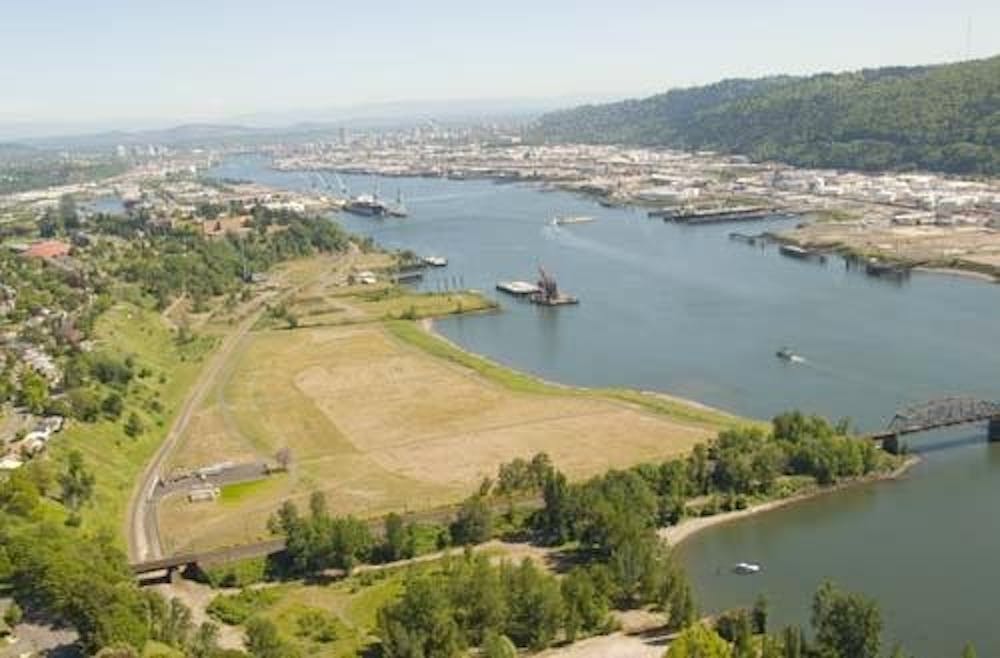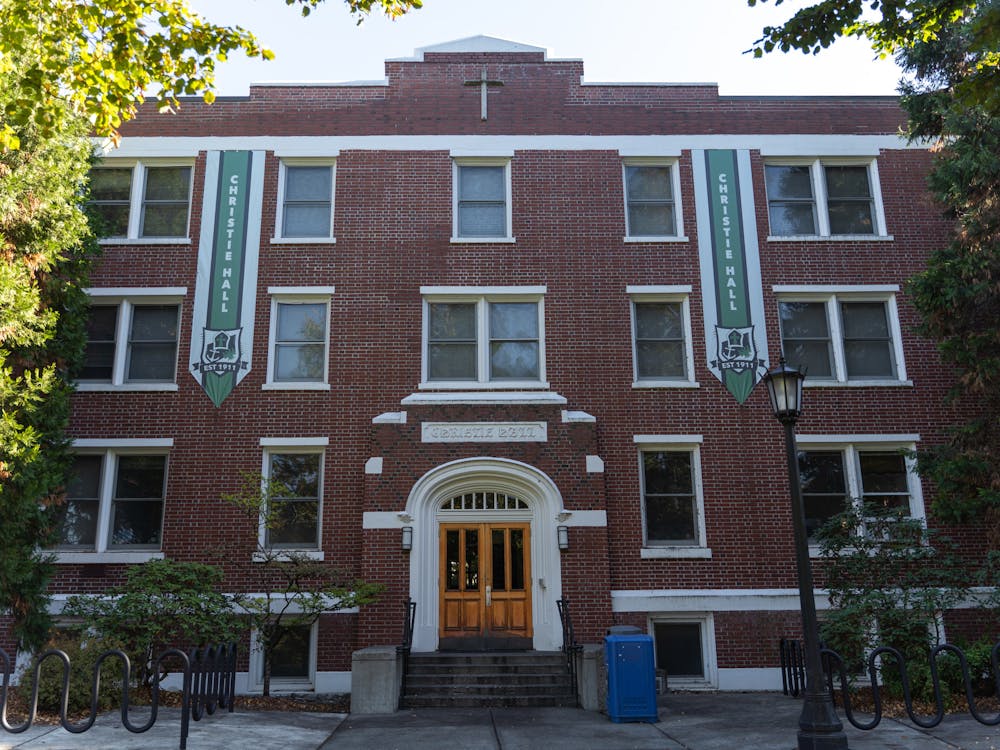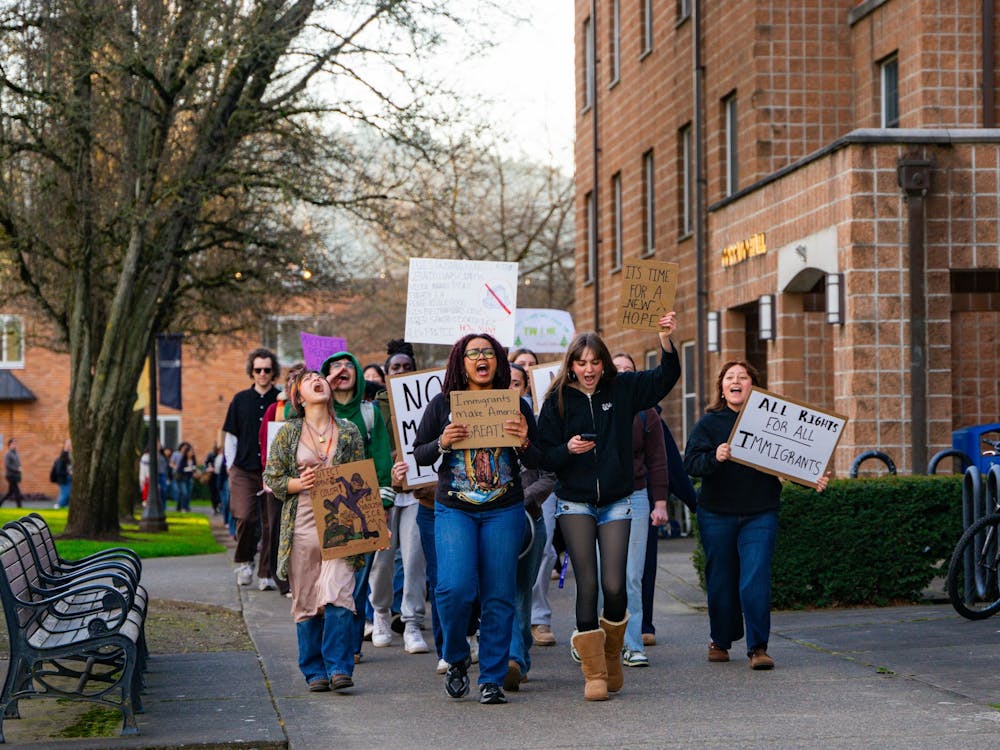The plan aims for a new baseball stadium by the 2014 season
The River Campus addition will be built along the Willamette River bank. The site was formally used as a lumber mill, power plan and dry dock, and requires extensive clean up before construction can start. Below (Photo courtesy of UP marketing)
By Philip Ellefson, Staff Writer ellefson15@up.edu
After years of planning and months of meeting with agencies and neighbors, UP has submitted the final version of its Master Plan to the City of Portland for a hearing by the Portland City Commission this fall.
The University submitted the 300-page document Jul. 27, and the University Park Neighborhood Association's (UPNA) executive board voted unanimously to endorse the plan Aug. 13.
The City of Portland will hold a public hearing on the Master Plan, which Kuffner expects to happen in October. After that, UP may make some small changes to the plan and the City Commission will vote on it.
"In the best of all circumstances, the University could have an affirmative hearing report with a recommendation for approval that is not appealed that goes into effect around the first of November," said James Kuffner, assistant vice president of community relations and public projects.
The Master Plan lays out a vision of what UP may look like in 20 years, after the River Campus is cleaned up and developed as an extension of the campus. The vision includes a new baseball stadium, an environmental science building and enough additional housing and parking space to accommodate 5,000 undergraduate students.
Some students believe the Master Plan is important to the progress of the university. Senior Sam Coy, a Corrado Hall Residential Assistant, is excited that there will be more space on campus.
"We can't be so crammed together," Coy said. "Right now it seems like we're trying to stuff people in like sardines, both in dorms and in classes."
Kuffner said the plan promotes the success of the university on a grand scale.
"The Master Plan provides a means by which the University can embrace a forward agenda for continued success, where the neighbors can feel that they have good and reasonable input," Kuffner said.
Representatives of UP have met with UPNA numerous times and hosted an open house last spring where neighbors voiced their concerns about the Master Plan. Some neighbors asked questions regarding building heights, traffic impacts and even parties, though the plan does not address that.
UPNA Chair Tom Karwaki believes the neighborhood is satisfied with the final version of the master plan.
"Nobody got exactly what they wanted, but it was a good collaborative approach," Karwaki said. "There are some people who are still concerned, but I think the majority are happy."
Although UPNA members voted to endorse the plan, they are not finished with their involvement in the master plan.
Karwaki said the association will address each item on the plan individually.
Although the Master Plan has not yet been approved by the city, contractors recently began a soil relocation project on the River Campus. In the past, the area was used as a lumber mill, power plant and dry dock. These facilities left contaminants like PCBs, hydrocarbons, PAHs and metals in the soil. But Kuffner said the contamination is not significant.
"There is some contamination on the site, but on a scale of one to ten, it's kind of below one," Kuffner said.
Soil near the river is being moved upland to other parts of the River Campus and to landfills to avoid polluting the Willamette River. Kuffner said the soil relocation project is going well.
"The work that is underway now is amazing to see happen. As of [Aug. 31], they had already moved and completed about 8,000 cubic yards of soil," he said.
Most of the soil is being moved to the location of the future baseball stadium, which Kuffner said is the first project that will be completed on the River Campus. He expects it to be built and ready for the 2014 baseball season.
Although the soil could contaminate water, it's not toxic enough to be dangerous as the foundation of the stadium.
Kuffner hopes the soil relocation will be done by the end of November. The first event to happen on the River Campus will be a community planting day, which may take place in early 2013.
"[The planting] marks the beginning of what will be a vibrant and exciting future chapter for the university," Kuffner said.








